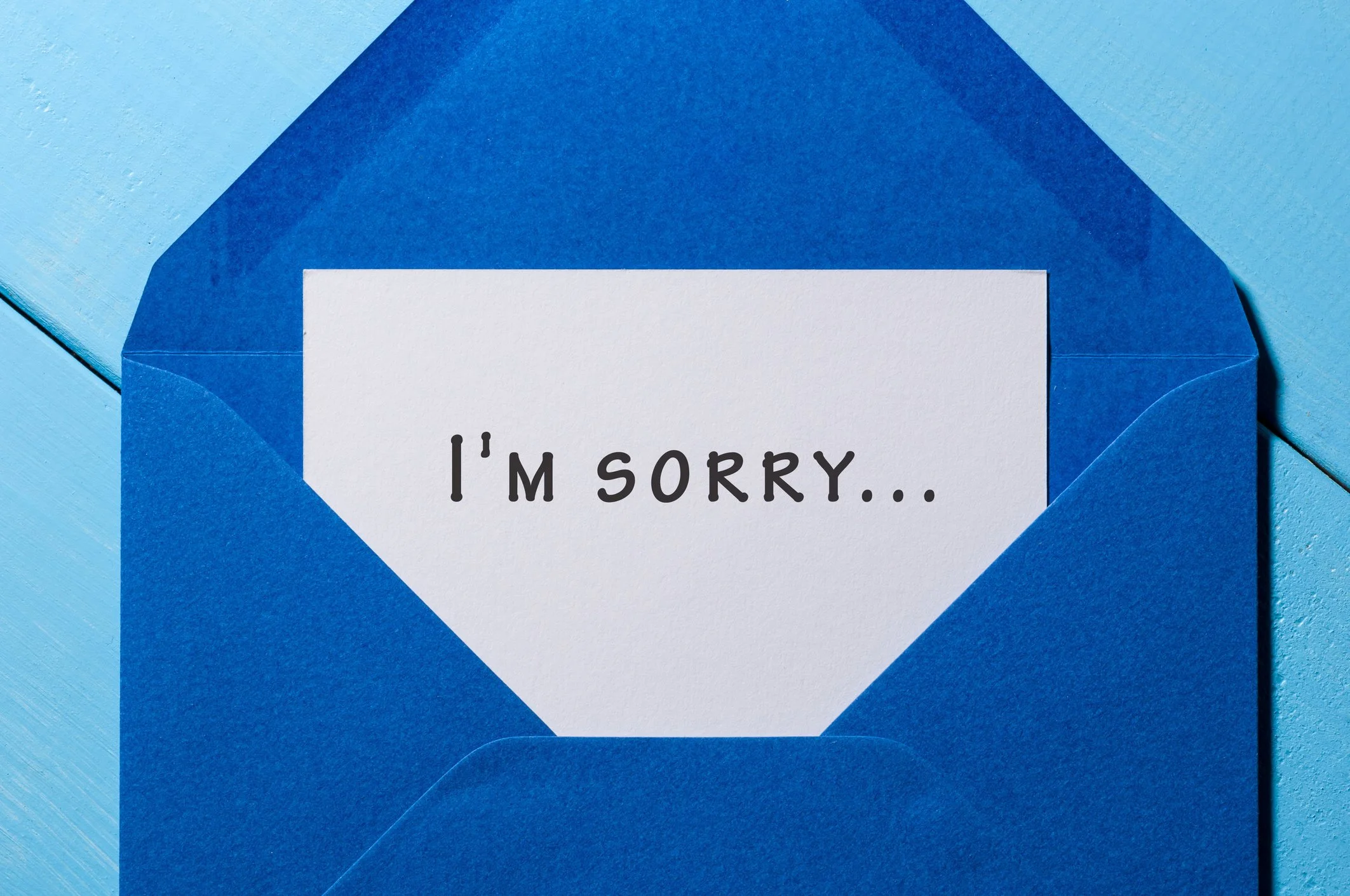The Apology Cure: 5 Things to Remember
“Go say you’re sorry.”
This phrase carries a two-part message. Wrongdoing has been done and an apology will remedy the situation. If it was that easy, why are so many people resistant to saying, “I’m sorry?” Or why does the recipient not feel a sense of resolution? Apologies can’t fit into an input, output box. Saying, “I’m sorry,” is a practice that requires an understanding of its potential magnitude, both for healing and in harming. If not, this two-word phrase becomes a reckless, and unforgiving concept.
According to research, there are two types of apologies, a sincere apology and an instrumental apology. Sincere apologies come from the heart and acknowledge one’s fault, while instrumental apologies are made to avoid rejection and punishment. Intentionality distinguishes the two, with the latter focusing on an outcome, not the process. When we skip to the end, we bypass the in-between. And the middle is where the beauty lies. It’s a place of detachment, where messy is met by vulnerability, and connectedness has an opportunity to expand.
It’s time to sit on the edge of uneasiness and engage the art of apologizing. Here’s 5 things to think about when saying, “I’m sorry.”
1. APOLOGIZING IS A CONCEPT.
By learning and teaching the fundamentals of a sincere apology and what an apology has the potential to do, we can shift our attention away from an expected outcome and allow a mutual exchange to come forward. Apologies are an opportunity to express regret and repair relationships; that is, if they are done with intentionality. In addition to an expression of regret, research shows that an effective apology also includes an explanation of what went wrong, acknowledgement of responsibility, sincere remorse, an offer to repair what happened, and asking for forgiveness.
Notice how these six factors align with openness and permissiveness versus an energy of control. From this perspective an apology is a practice, not a band-aid statement.
2. MORAL DILEMMA
There’s a real scenario that exists when feelings have been hurt, yet the alleged offender doesn’t feel the need to apologize. Yet, what happens when saying sorry feels inauthentic, yet you inherently know an apology will mend and re-establish the relationship. For some, saying “I’m sorry” may feel like an admission of guilt, but let’s be clear, saying sorry isn’t a confession of wrongdoing. It is possible to apologize for unintentionally hurting the person involved without taking responsibility for the perceived offense.
And, when in doubt, meaning you can’t make a sincere apology, it may be best to keep your lips sealed.
3. NEED VERSUS LIKE
Many of us grew up with apologies being a forced concept, “you need to apologize.” Sorry became an automatic response that was necessary to free us from our own punishment. Let’s curiously look at this, has saying sorry become a social construct whereby no apology is highly frowned upon? And are we judged for our lack of remorse, even in moments when we’re truly aligned in our truth and choose not to apologize for whatever reason?
Don’t get me wrong, saying “I’m sorry” is a nice gesture, yet I think we’ve been accustomed to liking apologies because it’s the “right thing” to do.
4. PATTERN OVER TIME
When we’ve hurt someone, intentionally or unintentionally, our apology carries more meaning if the apology shows a change in behavior. This is especially true for repeated offenses and applies to one-time misdeeds too. Acknowledging wrongdoing is a great start, yet the apology doesn’t end there. When we show a change in behavior over time, we create a new pattern. Not only does this highlight our integrity, it shows others that we’re trustworthy and truthful.Not to mention, you’ll feel good knowing you didn’t provide an empty apology.
5. ASSESS YOUR FEELINGS
What are your personal feelings about apologies? Are you someone that takes responsibility and readily apologizes or is it difficult to say you’re sorry? Is it easy to accept an apology or do you have certain expectations that need to be met? Apologies are interactive, a communication between parties, and your sentiments will influence the exchange. By giving yourself time to self-reflect, you’ll have a greater sense of how to best apologize from your most authentic space and understand what you need from an apology.
An apology is a possibility, not a guarantee. When you find yourself “needing” to apologize, be reminded, the intention behind, and how you apologize matters. So ask yourself, how can I best approach this experience with sincerity?


